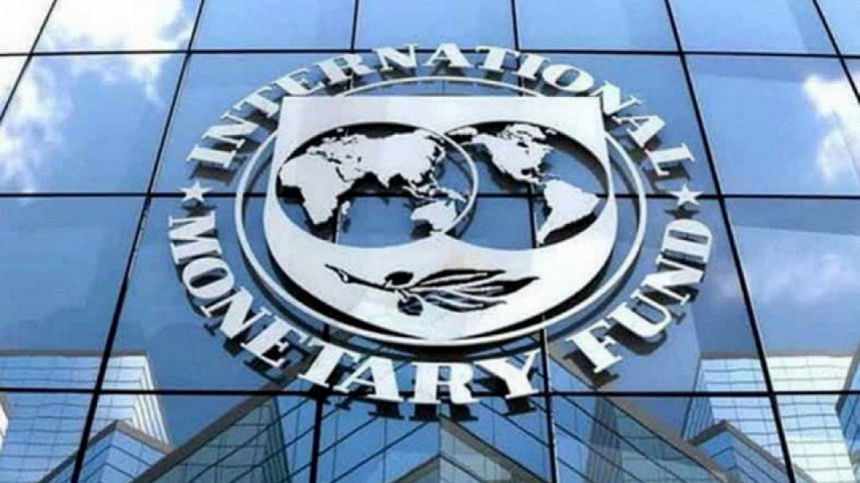IMF conditions: Govt pledges to track graft in tax admin

- Tk 30,000cr additional revenue by reducing tax exemptions in FY26
- 3-year roadmap by Sept to cut gap between power generation costs, prices
- Export incentives to be phased out completely in FY26
- Remittance subsidy to end by January 2027
The government has pledged a series of sweeping reforms to meet International Monetary Fund conditions for the next instalment of its $5.5 billion loan, including a public survey to measure corruption in tax administration and a phased reduction of subsidies on electricity, fertiliser, remittances and exports.
The survey will be conducted every two to three years to assess whether reforms are fostering citizens' trust in tax administration, according to the IMF's latest programme report released on Thursday.
"We will take several measures to enhance transparency and governance in tax administration," the report quoted the government as saying.
The IMF has set 33 conditions -- 21 prior and structural benchmarks and 12 performance and indicative targets -- for the next loan instalment. One key requirement is that the government generate Tk 30,000 crore in revenue by reducing VAT and income tax exemptions in the FY26 budget.
The government has also committed that the National Board of Revenue will publish a departmental code of ethics and professional conduct for tax officials by September, with all officers affirming compliance by December.
NBR staff will be required to undergo ethics training every two to three years and affirm their adherence annually. The board will also begin publicly reporting integrity statistics, including actions against officials for misconduct, delinquency and corruption, within six months of each fiscal year's end.
Since the programme began in January 2023, Bangladesh, having one of the world's lowest tax-to-GDP ratios, has consistently missed NBR revenue targets.
Against this backdrop, the NBR has been tasked with collecting Tk 443,530 crore by June 2025 and Tk 550,700 crore by June 2026 -- ambitious goals requiring sweeping reforms, improved compliance and reduced exemptions.
Earlier this month, Bangladesh sent a reform plan to IMF Managing Director Kristalina Georgieva, outlining steps in exchange rate policy, banking and financial sector reforms, revenue collection, and central bank autonomy.
The letter, signed by Finance Adviser Salehuddin Ahmed and Bangladesh Bank Governor Ahsan H Mansur, said, "In response to mounting pressures from an emerging external financing gap and persistently high inflation, we remain committed to near-term policy tightening."
"We will also intensify our efforts to implement critical structural reforms. Specifically, we will prioritise the full implementation of the new exchange rate regime and take decisive steps to address the shortfall in domestic revenue mobilisation."
It further said the government aims to establish a healthy, competitive financial sector regulated and supervised in line with best international practices.
Along with the letter, the government submitted a Memorandum of Economic and Financial Policies (MEFP) laying out the reform roadmap.
According to the MEFP, the advisory council has already approved in principle the separation of tax policy from tax administration. A new ordinance is being prepared, after which a detailed implementation roadmap will follow.
"We will intensify our efforts in FY26 to significantly raise the tax-to-GDP ratio, in line with our programme commitment," said the MEFP.
To meet the revenue target, several measures have been introduced in the FY26 budget, aimed at generating Tk 30,000 crore in additional revenue.
The government also published its Medium- and Long-Term Revenue Strategy (MLTRS) as advised by the IMF and World Bank.
"As a priority under the MLTRS, we will also establish a new tax expenditure policy framework that sets out clear rules and procedures for the approval, modification, and repeal of tax exemptions, and assign the ultimate decision-making authority to parliament -- or to appropriate authorities in its absence."
SUBSIDY
The government has pledged to reduce subsidy spending to safeguard priority spending and devise a multi-pronged plan to reduce the spending to a fiscally sustainable level over the next two years.
As per one of the structural benchmark conditions, a three-year roadmap (FY26–FY28) will be adopted by September to gradually narrow the gap between electricity generation costs and selling prices through measures including tariff adjustments with protection for the vulnerable population.
According to the IMF, the per kilowatt loss in electricity rose from Tk 1.64 in FY21 to Tk 5.11 in FY24, with projections of Tk 5.27 this year.
To contain spending in FY25, several measures were taken to cut electricity generation costs, with the subsidy ceiling set at Tk 37,400 crore, agreed in December 2024.
"If the electricity subsidies' outturn is above the ceiling, we will revisit the existing electricity tariff only after other cost adjustment measures are not sufficient to reduce subsidies," said the MEFP.
The government also plans to fully phase out the remittance subsidy during the remainder of the programme until January 2027, citing improved performance of the flexible exchange rate regime.
On export subsidies, the MEFP said, "We have already lowered export incentives for the apparel, leather and jute sectors in the FY25 budget and plan to phase them out completely in FY26."
For fertiliser, the plan is to reduce subsidies by increasing storage capacity to avoid peak-season imports, cutting other import-related costs, and raising sale prices.
BB AUTONOMY
The government must submit amendments to the Bangladesh Bank Order, including on governance, autonomy, accountability, and transparency, to the cabinet by September and issue an ordinance by December.
A task force has already been formed to prepare broader reform recommendations by December 2025.
"We intend to align BB's mandate with the modern principles of central banking, enhance its autonomy and accountability, and facilitate effective decision-making," the MEFP said.
It added that the reform agenda includes strengthening risk management at the central bank, phasing out quasi-fiscal lending schemes, and limiting monetary financing of the government.


 For all latest news, follow The Daily Star's Google News channel.
For all latest news, follow The Daily Star's Google News channel. 



Comments